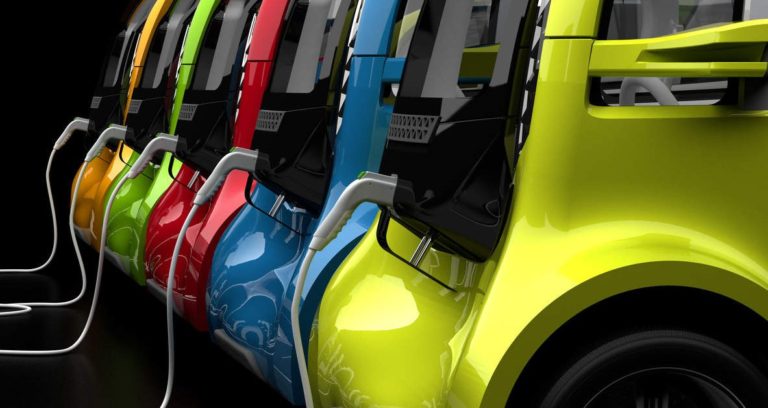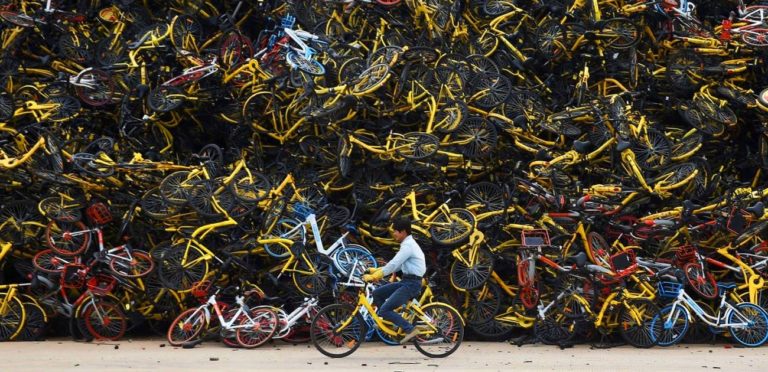By the time you finish reading this sentence, tens of thousands of plastic bottles will have been sold around the world. The plastic bottle, a versatile and economical container, is used for everything from water to household cleaning products. Despite its undeniable usefulness, the sheer volume of waste created by the 7.5 billion people on the planet is becoming increasingly difficult to ignore.

The visualization from Reuters Graphics puts the immense scale of plastic bottle waste into perspective by comparing it to recognizable global landmarks. If all the bottles discarded in 10 years were dumped in one location, the pile would be big enough to bury all of Manhattan.
Discarded in One Hour
Every hour, approximately 55 million plastic bottles are discarded worldwide. To visualize the impact, imagine a pile of bottles that would be taller than Christ the Redeemer. At 38 meters high and 30 meters wide, the statue is dwarfed by the amount of plastic bottles accumulated in just one hour.
Discarded in One Day
In the space of a single day, more than 1.3 billion plastic bottles are discarded globally. If you were to climb halfway up the 324-meter-high Eiffel Tower, you would only be halfway through the pile of bottles accumulated in a single day. This volume is an alarming indicator of the growing problem of plastic waste.
Discarded in One Month
If we were to continue to dump plastic bottles next to the Eiffel Tower for a month, the resulting pile would be immense. Approximately 40 billion plastic bottles would accumulate, forming a mountain of plastic next to the iconic monument. This figure highlights the enormous waste that occurs every month.
The Global Impact of Waste
Data from Euromonitor International reveals that over 481 billion plastic bottles are wasted every year. If all the bottles sold in 2018 were piled up, it would be taller than the Burj Khalifa, the world’s tallest building, at an impressive 830 meters. This volume of plastic waste highlights the magnitude of the global problem.
Over the past decade, nearly 4 trillion bottles have been sold, resulting in a pile of plastic that is 1.5 miles high. If all plastic bottle waste were piled this way, the pile would be half as high as the highest peak in the Rocky Mountains, which is 2.7 miles high. This scenario illustrates the urgency of finding solutions to manage the impact of plastic bottles.
The Global Flow of Plastic Waste Since 1950
Plastic bottles are just the tip of the iceberg when it comes to single-use plastics. Other examples include plastic bags, food packaging, coffee cup lids, and the current culprit: plastic straws. The increasing use of plastics has made the waste management challenge even more critical.
Only 6% of all plastic produced since 1950 has been recycled, with most of the waste ending up in landfills, landfills or being incinerated. This low recycling rate highlights the urgent need for more effective solutions to plastic waste management.
The Solution: Plastic Recycling
The solution to the plastic waste problem is recycling. If you think that replacing plastic bottles with glass bottles would solve the problem, it is important to consider that recycling plastics is essential to reducing the environmental impact. Investing in the recycling industry and becoming a recycler are important steps in dealing with the growing amount of plastic waste.
Furthermore, it is essential to adopt measures such as replacing single-use plastics with more sustainable alternatives and participating in selective collection to ensure that plastic waste is disposed of correctly. Plastic use is on an unsustainable trajectory, but countries such as Canada and the European Union are adopting specific policies to curb the use of single-use plastics by 2021.
Role of Companies
Companies are also taking steps to reduce the environmental impact of plastics. One notable example is Unilever, which has committed to making all of its packaging reusable, recyclable or compostable by 2025. In Brazil, although legislation is progressing slowly, regularization is an inevitable path to ensuring that practices respect the environment.
Recycling plastic bottles is a crucial piece of the waste management puzzle. By adopting sustainable practices and supporting recycling policies, we can significantly reduce the impact of plastic bottles on the environment and create a more sustainable future.
Check out other interesting facts about recycling clicking here.
Learn how to make art by recycling, Click here.



